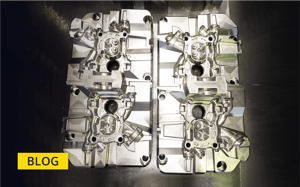Training Program
Training and consulting for operational excellence
Operational Excellence Academy—an open platform for consulting and training in the high-tech industry
The Operational Excellence Academy helps you strengthen your market position with an expanding range of training and consulting services. Our experienced and independent trainers understand the challenges across various industries, providing you with tailored support.
camLine offers on-site and online training, workshops, and consulting for industrial projects, encouraging open discussions that lead to practical solutions and long-term success.
-
Fundamentals Training:
Perfect for beginners, this course teaches the fundamental skills to get you up and running with camLine’s solutions.
-
Advanced Training:
Dive deeper into specialized topics to expand your expertise and develop advanced skills.
-
Administration Training:
Tailored for IT personnel, this course focuses on system administration, notification manager, and user administration.


Data Analysis with
Cornerstone
This course focuses on using Cornerstone software for statistical data analysis. It emphasizes Design of Experiments (DoE) and other important statistical procedures. Through practical examples, you will learn how to handle diverse data sources and improve the speed of analysis by linking various methods and graphical techniques.

Design of Experiments
(DoE)
In this course, you will learn how to use statistical Design of Experiments (DoE) to create process models efficiently. By reducing the number of experiments required, DoE helps you develop new products and optimize existing processes. You will build confidence in applying these methods through practical examples and hands-on learning.

Statistical Process Control
(SPC)
Statistical Process Control (SPC) helps monitor and regulate production processes. This course teaches you how to use statistical methods to detect deviations and improve process stability. You will also learn how SPC supports quality management strategies by identifying when and how to intervene in production processes.

Statistical Tolerance
Calculation
This course introduces statistical tolerance calculation, which allows for a more realistic estimation of production variability. By understanding input variables and their distributions, you will learn to design more robust processes. The course also integrates simulations and other methods like DoE for improved process design and fulfillment of customer specifications.

Measurement System Analysis
(MSA)
Learn how to evaluate and improve your measurement systems in this course. By ensuring reliable and accurate measurement processes, you can enhance production quality and reduce operational costs. The course provides practical techniques to assess measurement suitability, long-term stability, and reproducibility–all crucial for both production and R&D.

Microfabrication Process Engineering with XperiDesk
This course teaches a structured approach to microfabrication process development using XperiDesk. You will learn how to apply best practices and methodologies to streamline process tasks. Techniques such as Design of Experiments (DoE) are integrated throughout the course to help you solve common manufacturing challenges efficiently.
Gain Practical Skills in Manufacturing Data Management with camLine academy
Register for camLine academy training programs to gain hands-on expertise in optimizing your manufacturing processes. Whether you’re looking to master camLine products or enhance skills such as data analysis, DoE, or SPC, these courses offer practical applications and industry-specific insights.
Secure your spot now by completing the following form. Once your registration is processed, we’ll send you all the necessary details. If you have any questions or need help with a specific course, feel free to contact us.
Meet Our Trainer
Our training programs are led by industry experts with years (if not decades) of hands-on experience in the manufacturing sector. Each trainer brings a wealth of knowledge, practical insights, and a passion for teaching, ensuring that participants gain valuable skills and a deep understanding of the subject matter.

Dr. Theo Wember
DoE expert, Cornerstone board memberA freelance statistician since 1988, Theo Wember specializes in DoE and technical statistics, with recent work in machine learning. He conducts training courses and consults on technical statistics, also serving on the camLine Cornerstone board. Read full bio
Claudia Wahl
DoE and SPC consultant With over 30 years in the semiconductor industry, Claudia Wahl specializes in SPC, DoE, and Six Sigma. Her experience spans development, production, and logistics in international teams. Since 2017, Claudia has been a freelance consultant and trainer specializing in Design of Experiments (DoE) and Statistical Process Control (SPC) to optimize processes, implement data-driven strategies, and provide Lineworks SPACE training and consulting.Read full bio
Dr.-Ing. Dirk Ortloff
ConsultantDirk Ortloff, a computer scientist with a doctorate in micromechanics, has focused on innovation management in high-tech industries. He founded Process Relations, later acquired by camLine, and now leads his own consulting and training company. Read full bio
Dr. Marten Walther
Six Sigma consultantMarten Walther has over 20 years of experience in the glass industry, focusing on data analysis for process development. He has also served as a Six Sigma trainer at SCHOTT Academy. Marten now works as a consultant and trainer, helping various industries improve processes and outcomes. Read full bio
Dr. Tanja Fischer
Six Sigma consultantTanja Fischer advocates for data-driven decisions, believing in the power of numbers. She emphasizes careful analysis and interpretation, guiding professionals in making informed, data-backed decisions. Read full bioFrequently Asked Questions
How are the training programs structured?
camLine academy training programs are structured to provide in-depth lectures, practical simulations, and expert discussions. Depending on the format, there are also hands-on exercises and personalized solutions.What’s the difference between the on-site/online training and e-Learning platform?
- On-site/Online Training: These are intensive, instructor-led programs with direct interaction and practical exercises.
- e-Learning Platform: This offers self-paced learning, allowing participants to complete courses at their own convenience.
Can I request a customized training program?
Yes, camLine academy offers customized training programs tailored to your specific needs. You can request personalized training by contacting our support team to discuss your requirements.How do I register for a training program?
You can register for a training program by selecting the desired course on the camLine academy page and following the instructions.Who are the trainers at camLine academy?
Our trainers are industry experts with years of experience in the manufacturing sector. They bring practical insights and a passion for teaching to ensure participants gain valuable, applicable skills.Is there a minimum number of participants required for on-site training?
Yes, on-site training typically requires a minimum number of participants. Please contact us to learn about the specific requirements for your desired training.Explore More Pages
Discover valuable resources—from our latest news, events, and webinars to white papers—that offer insights into manufacturing automation and innovation.






Let’s Discuss Solutions with camLine's Experts
Our team is ready to deliver tailored solutions that streamline your production, improve product quality, and maximize efficiency across your operations. Tap into camLine’s decades of expertise in digital transformation to overcome your manufacturing challenges.

